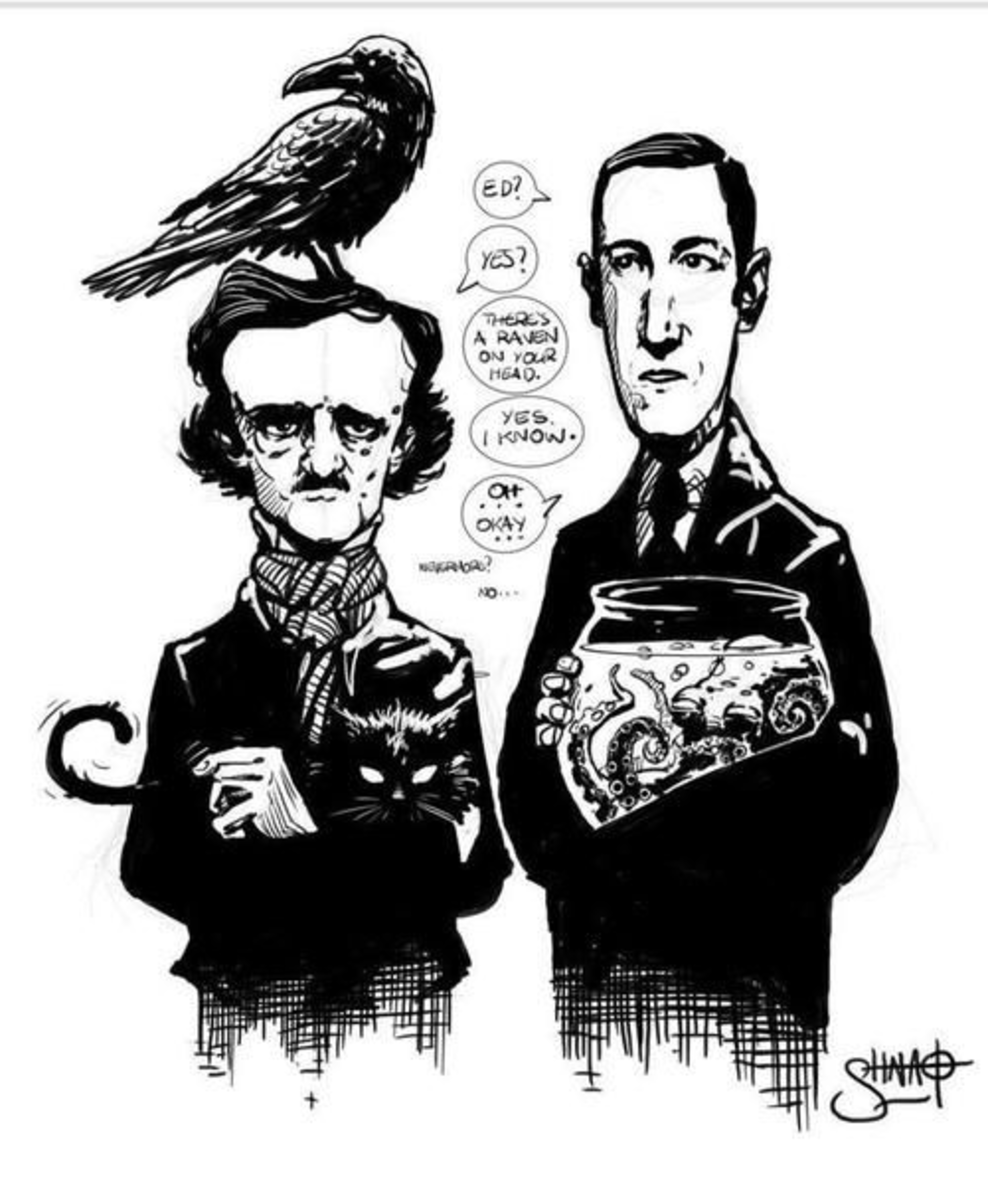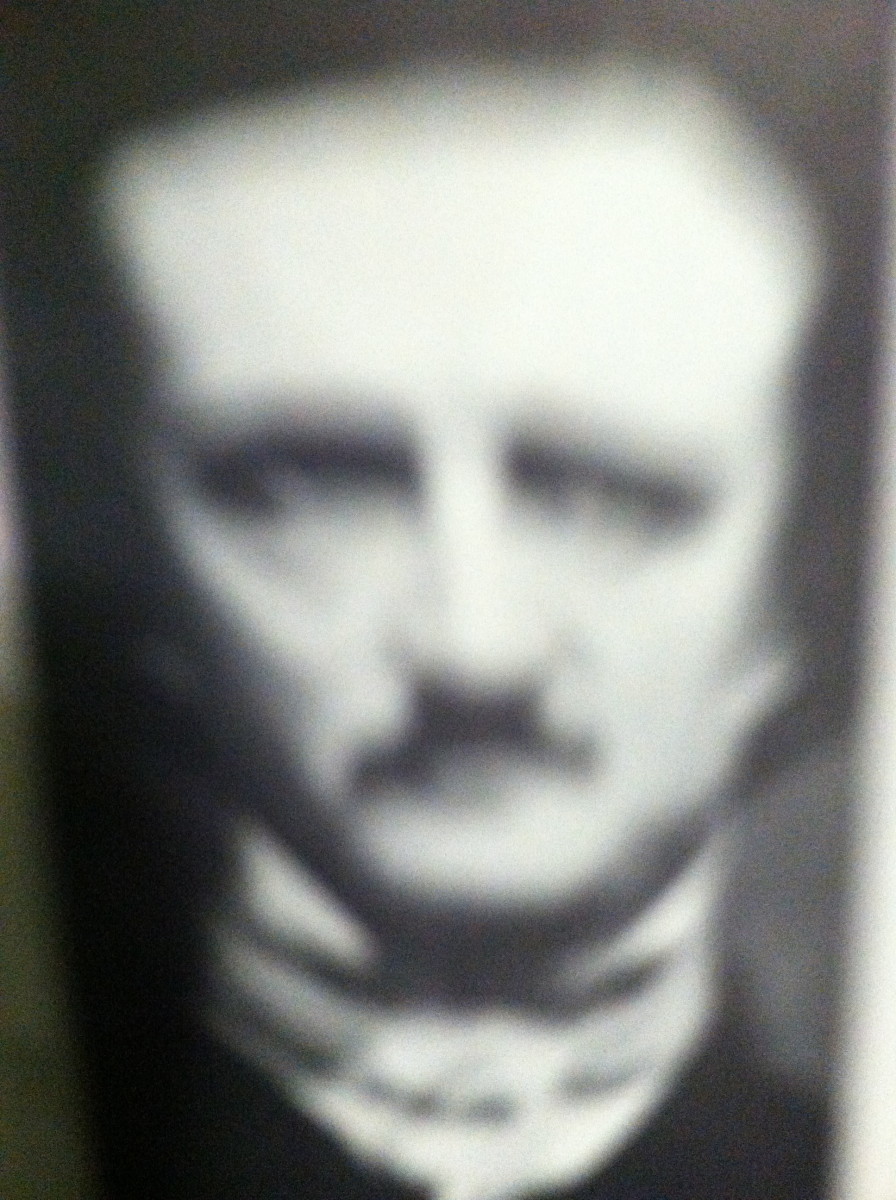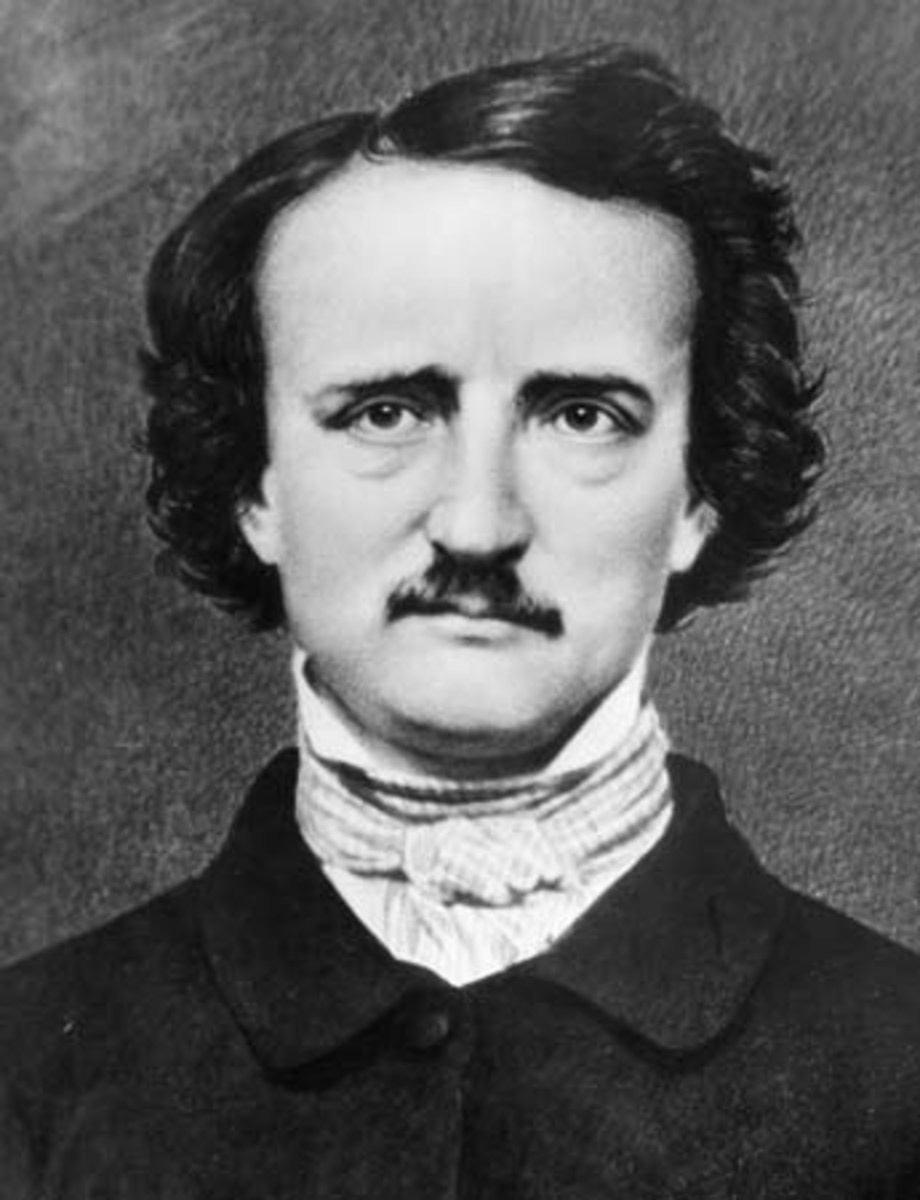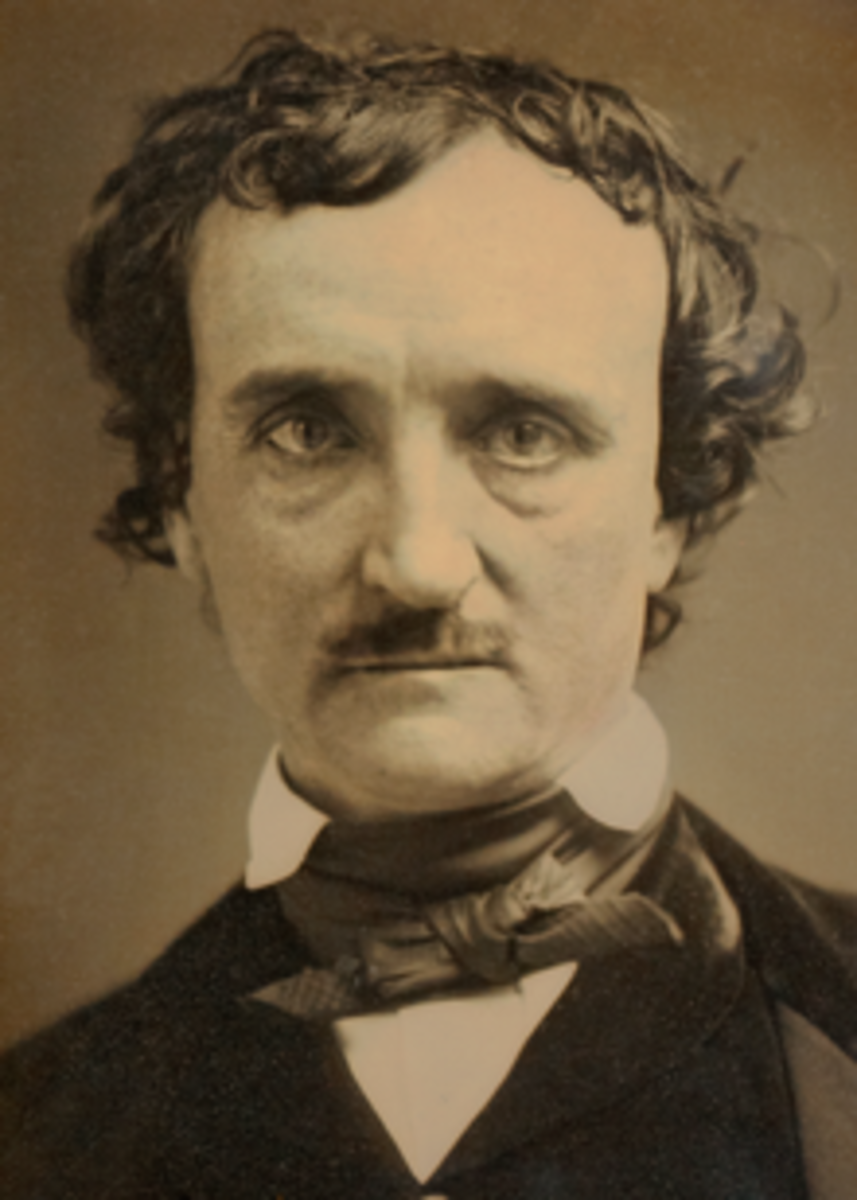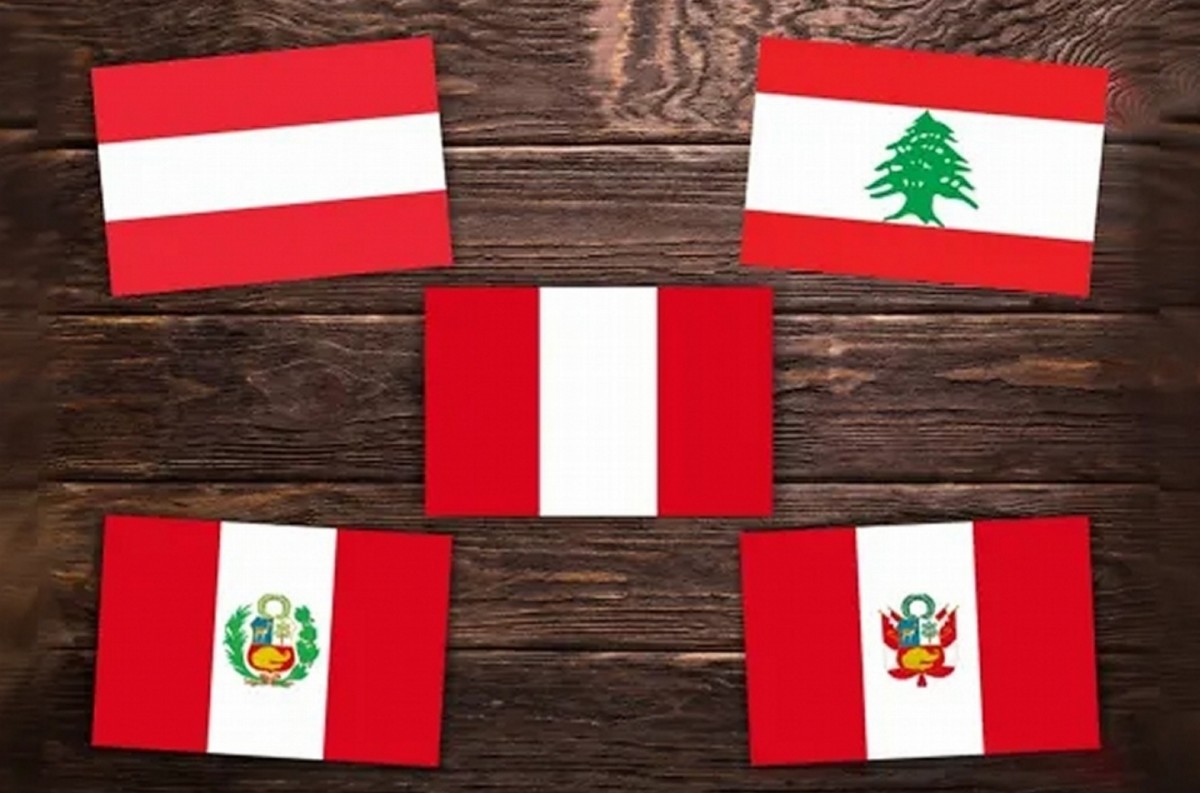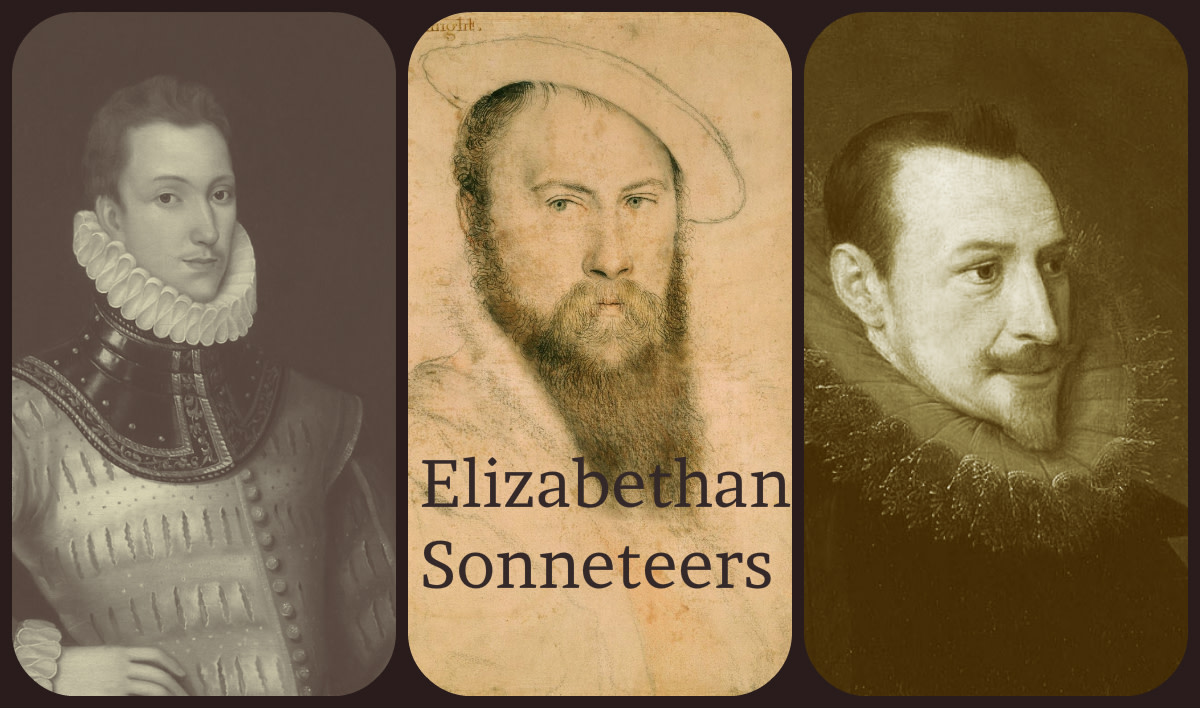The Raven by Edgar Allan Poe
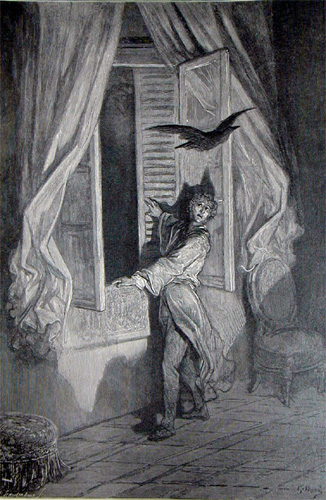
Mary Cecilia Rogers plays the part of the Raven in:
- The Murder of Edgar Allan Poe
This theatre monologue is also a ghost story, which raises the question if Edgar Allan Poe was not only a brilliant author, but also a demonic killer, who wrote "The Mystery of Marie Rogêt" to boast about a crime he committed…
The Raven and Other Songs, by the Raven
- The Raven on MySpace Music - Free Streaming MP3s, Pictures & Music Downloads
MySpace Music profile for The Raven. Download The Raven Folk music singles, watch music videos, listen to free streaming mp3s, & read The Raven's blog.
Top Interpretations of The Raven
There are some great interpretations on YouTube or MySpace of Edgar Allan Poe's The Raven. But above all, I go for... "The Raven and Other Songs" by the Raven, some songs chosen from Poe's poems and composed in a manner to reflect the broad variety in which Poe captures and illustrates the entire human experience. From haunting organ sounds and screaching guitar on The Raven and The Conqueror Worm to a melancholic guitar on A Dream within a Dream and Alone each song was composed with the utmost care to truly capture the essence of what Poe was trying to express and the imagery he was trying to unveil in his poems. With a truly wonderful Annabel Lee rendition!
________________________________________________________
Enjoy!
The Raven by Edgar Allan Poe
Once upon a midnight dreary, while I pondered, weak and weary,
Over many a quaint and curious volume of forgotten lore--
While I nodded, nearly napping, suddenly there came a tapping,
As of some one gently rapping--rapping at my chamber door.
"'Tis some visitor," I muttered, "tapping at my chamber door--
Only this and nothing more."
Ah, distinctly I remember, it was in the bleak December,
And each separate dying ember wrought its ghost upon the floor.
Eagerly I wished the morrow;--vainly I had sought to borrow
From my books surcease of sorrow--sorrow for the lost Lenore--
For the rare and radiant maiden whom the angels name Lenore--
Nameless here for evermore.
On The Nightmares of Poe site you'll find the summary of this poem, one of the most famous American poems ever. Edgar Allan Poe uses several symbols to take the poem to a higher level:
The most obvious symbol is, of course, the raven itself. When Poe had decided to use a refrain that repeated the word "nevermore," he found that it would be most effective if he used a non-reasoning creature to utter the word. It would make little sense to use a human, since the human could reason to answer the questions (Poe, 1850). In "The Raven" it is important that the answers to the questions are already known, to illustrate the self-torture to which the narrator exposes himself.
(...)
A less obvious symbol, might be the use of "midnight" in the first verse, and "December" in the second verse. Both midnight and December, symbolize an end of something, and also the anticipation of something new, a change, to happen. The midnight in December, might very well be New Year's eve, a date most of us connect with change.
(...)
The chamber in which the narrator is positioned, is used to signify the loneliness of the man, and the sorrow he feels for the loss of Lenore. The room is richly furnished, and reminds the narrator of his lost love, which helps to create an effect of beauty in the poem. The tempest outside, is used to even more signify the isolation of this man, to show a sharp contrast between the calmness in the chamber and the tempestuous night.
In this narrative poem - a true "dark and gothic ballad", a lonely man tries to ease his "sorrow for the lost Lenore" by distracting his mind with old books of "forgotten lore." He is interrupted while he is "nearly napping," by a "tapping on his chamber door." As he opens up the door, he finds "darkness there and nothing more." Into the darkness he whispers: "Lenore" - hoping his lost love has come back, but all that he can hear is "an echo" murmuring: "Lenore".
The man returns to his chamber, and this time he can hear a tapping at the window lattice. And in there comes a stately Raven, "the bird of ill-omen", according to Poe. The raven perches on the bust of Pallas, the goddess of wisdom in Greek mythology, above his chamber door.
The man asks the Raven for his name, and surprisingly it answers, and croaks: "Nevermore." The man knows that the bird does not speak from wisdom, but has been taught by "some unhappy master," and that the word "nevermore" is its only "stock and store."
The man welcomes the raven, and is afraid that the raven will be gone in the morning, but the raven answers: "Nevermore." The man smiles, and pulls up a chair, interested in what the raven "meant in croaking, 'Nevermore.'" The chair, where Lenore once sat, brings back painful memories. The man, who knows the irrational nature in the raven's speech, still cannot help but ask the raven questions. Since the narrator is aware that the raven only knows one word, he can anticipate the bird's responses....
Can Lenore be found in paradise? - "Nevermore."
Finally the man concedes, realizing that to continue this dialogue would be pointless. And his "soul from out that shadow" that the raven throws on the floor, "Shall be lifted -- Nevermore!"



